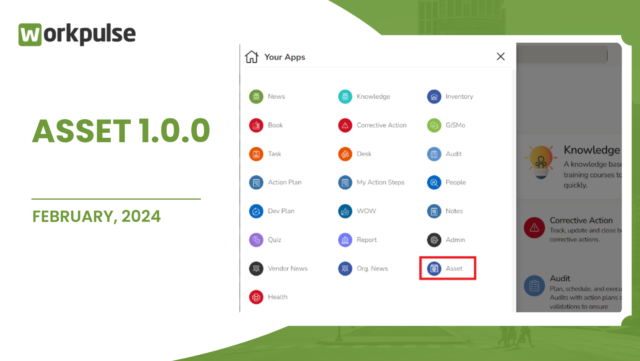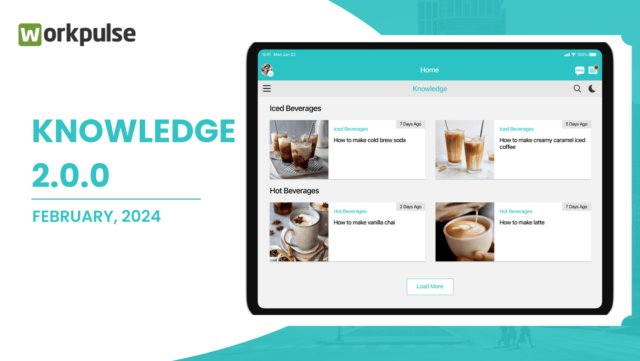In today’s fast-paced and competitive restaurant industry, staying ahead of the curve is crucial for success. As customer expectations continue to evolve, restaurants are turning to technology to streamline operations and deliver personalized experiences. Artificial Intelligence (AI) has emerged as a game-changer, revolutionizing the way restaurants manage their operations, enhance efficiency, and provide personalized services. In this blog, we will explore the significant role of AI in modern restaurant management systems and how it is reshaping the industry.
Understanding the role of AI in restaurant management
Artificial Intelligence (AI) has emerged as a transformative force in various industries, and the restaurant management sector is no exception. Understanding the role of AI in restaurant management is crucial for restaurant owners and operators seeking to enhance efficiency, streamline operations, and deliver exceptional guest experiences.
At its core, AI involves the use of sophisticated algorithms and machine learning techniques to analyze data, recognize patterns, and make informed decisions without explicit human programming. In the context of restaurant management, AI systems leverage data from various sources, such as customer interactions, sales data, and inventory levels, to automate processes, optimize operations, and improve decision-making.
#1: Automation for efficiency
One of the primary benefits of AI in restaurant management is automation. AI-powered systems can automate routine and repetitive tasks, freeing up staff to focus on more strategic activities. From taking orders at self-service kiosks to processing payments and handling reservations, AI streamlines front-of-house operations, leading to faster service and reduced wait times for customers.
AI-driven automation also extends to back-of-house tasks, such as inventory management and staff scheduling. AI algorithms can analyze historical data to predict demand and optimize inventory levels, preventing wastage and ensuring restaurants have the right ingredients on hand. Additionally, AI-powered staff scheduling tools consider factors like foot traffic and historical sales data to create efficient work schedules, minimizing labor costs while maintaining optimal staffing levels.
#2: Personalization for enhanced guest experiences
In the competitive restaurant industry, delivering personalized guest experiences is crucial for building customer loyalty. AI plays a pivotal role in personalizing interactions with customers. By analyzing data from loyalty programs, customer feedback, and online reviews, AI-powered systems create detailed customer profiles. These profiles allow restaurants to tailor promotions, offers, and menu recommendations to individual preferences, enhancing guest satisfaction and fostering long-term relationships.
AI-powered chatbots also provide real-time customer support and engagement. Integrated into websites and mobile apps, chatbots offer instant responses to customer queries, reservation assistance, and personalized menu suggestions. This 24/7 support improves customer satisfaction and creates a seamless and interactive dining experience.
#3: Data-driven decision making
AI systems have revolutionized data analysis in the restaurant industry by processing vast amounts of data quickly and accurately. Through advanced algorithms and machine learning capabilities, AI-powered analytics generate valuable insights that would be otherwise challenging and time-consuming for humans to uncover.
For restaurant owners and managers, these insights are a goldmine of information. By analyzing data from various sources, such as sales transactions, customer feedback, social media interactions, and even weather patterns, AI systems can provide a comprehensive understanding of operational performance, customer behavior, and market trends.
With this deep understanding, restaurant owners can make data-driven decisions that align with their business goals and customer preferences. For example, AI analytics may reveal which menu items are top performers and which ones need improvement. Armed with this knowledge, restaurant owners can optimize their menus, removing underperforming dishes and promoting bestsellers, ultimately enhancing the overall dining experience.
AI-powered analytics can also help restaurants anticipate customer preferences and market trends. By tracking customer behaviors and preferences over time, AI systems can identify patterns and predict future trends. For instance, if certain ingredients or cuisines are gaining popularity in the market, AI analytics can alert restaurant owners, enabling them to introduce new dishes that align with these emerging trends and stay ahead of the competition.
Moreover, AI analytics play a crucial role in enhancing customer experience and loyalty. By analyzing customer feedback and interactions, AI systems can identify areas where improvements are needed and track the effectiveness of implemented changes. Whether it’s streamlining the ordering process, improving table turnover, or enhancing customer service, AI analytics can highlight the impact of these initiatives on customer satisfaction.
AI-powered analytics also enable restaurants to gain insights into their customer base. By analyzing customer data, such as demographics, preferences, and visit frequency, restaurants can create targeted marketing campaigns and loyalty programs. Personalized offers and promotions resonate more with customers, increasing their likelihood of returning and fostering brand loyalty.
Furthermore, AI analytics can help restaurants optimize their operations. By tracking key performance indicators (KPIs) such as table turnover rate, wait times, and staff efficiency, AI systems can identify bottlenecks and areas for improvement. Restaurants can then implement strategies to enhance efficiency, reduce wait times, and provide a more seamless dining experience.
#4: Kitchen operations and quality control
AI’s integration into kitchen operations has ushered in a new era of efficiency and precision. AI-driven kitchen automation systems have become instrumental in streamlining workflows and expediting food preparation. By harnessing the power of AI algorithms, these systems prioritize incoming orders based on their preparation time, ensuring that each dish is prepared and served promptly.
In traditional kitchens, chefs often face the challenge of managing a multitude of orders simultaneously. As orders pile up, it can be challenging to determine the most time-sensitive ones, leading to potential delays in food preparation and longer wait times for customers. However, AI-powered kitchen automation systems excel in this area, as they can swiftly assess the complexity and cooking time required for each dish. By prioritizing orders based on their preparation time, these systems enable chefs to focus on the most time-sensitive dishes, ensuring that they are served to customers without delay.
Furthermore, AI’s integration into kitchen operations extends beyond timely food preparation. AI-powered computer vision technology has become a game-changer in ensuring consistent quality and presentation of dishes. Before dishes are served to customers, computer vision systems can visually assess each plate, identifying any deviations from the restaurant’s quality standards.
For instance, in high-volume restaurant settings like fast-food chains, where consistency is paramount, AI-powered computer vision systems can scrutinize the presentation of burgers, sandwiches, and other dishes. They can detect irregularities in toppings, portion sizes, and overall appearance, ensuring that every dish meets the restaurant’s established standards.
This level of quality control not only enhances customer satisfaction but also reinforces the restaurant’s brand image. Consistency in dish presentation fosters customer loyalty and helps establish the restaurant as a reliable and reputable dining destination.
Additionally, AI-powered kitchen automation systems can contribute to waste reduction. By accurately predicting order demand and prioritizing orders accordingly, these systems minimize the likelihood of overproduction and food wastage. This approach not only saves costs but also aligns with sustainable and environmentally conscious practices, promoting responsible food management.
AI’s presence in kitchen operations doesn’t replace human expertise; rather, it augments it. Chefs and kitchen staff continue to play a pivotal role in food preparation, creativity, and execution. AI acts as a supportive tool, offering insights, optimizing workflows, and providing valuable data to enhance decision-making.
As the restaurant industry embraces AI-driven kitchen automation, it sets new benchmarks for operational efficiency, quality control, and customer satisfaction. By leveraging AI’s capabilities, restaurants can deliver seamless and exceptional dining experiences while also optimizing their resources and reducing wastage.
#5: Predictive Analytics for Inventory Management
AI-powered predictive analytics is a game-changer for restaurant inventory management. Traditionally, restaurants faced the challenge of striking a delicate balance between having enough ingredients to meet customer demands and avoiding excess inventory that could lead to spoilage and financial losses. With AI at their disposal, restaurants can now make data-driven decisions to optimize inventory levels and minimize waste.
By analyzing vast amounts of historical sales data, AI systems can identify patterns and trends in customer preferences, seasonal variations, and even specific days or times when certain dishes are more popular. This valuable information enables restaurants to accurately forecast demand, ensuring that they stock the right amount of ingredients precisely when they need them.
The benefits of AI-powered inventory optimization go beyond just cost savings. Ensuring that popular dishes are always available enhances customer satisfaction and fosters loyalty. Nothing disappoints a customer more than visiting their favorite restaurant only to find that a signature dish is temporarily unavailable due to insufficient ingredients. With AI-driven inventory management, restaurants can avoid such scenarios and consistently deliver a delightful dining experience to their patrons.
Moreover, AI systems continuously learn and adapt based on real-time data, allowing them to fine-tune their predictions over time. As restaurants collect more data and gain insights into customer behavior, the AI algorithms become increasingly accurate, leading to more effective inventory management and even better cost savings.
#6: Smart Staff Scheduling
AI-powered staff scheduling tools have transformed the way restaurants manage their workforce. By harnessing the power of artificial intelligence, these advanced tools analyze a plethora of data points, including historical sales data, foot traffic patterns, and even special events or promotions, to create optimized staff schedules.
Historical sales data provides valuable insights into the restaurant’s past performance and customer trends. AI algorithms can identify patterns in sales data, such as peak hours, busy days of the week, and seasonal fluctuations. By understanding these patterns, the AI system can predict future demand with remarkable accuracy, allowing restaurants to anticipate busy and slow periods.
Moreover, AI-powered staff scheduling tools can adapt to unique events and promotions that may influence customer behavior. For example, if a restaurant is running a special event or offering a limited-time promotion, the AI system can anticipate increased foot traffic and adjust staff schedules to ensure sufficient coverage during the event.
With all this data at its disposal, the AI system efficiently allocates staff resources based on predicted demand. During slow periods, the system schedules fewer staff members to avoid overstaffing and unnecessary labor costs. Conversely, during busy times, it ensures enough staff is on hand to deliver excellent service and prevent long wait times for customers.
#7: Predictive Maintenance for Equipment
driven predictive maintenance systems have emerged as a game-changer in the restaurant industry, especially when it comes to managing kitchen equipment. By leveraging the power of artificial intelligence, these advanced systems can analyze a vast amount of data from kitchen equipment, detecting early signs of potential malfunctions or performance issues.
Traditionally, restaurants have relied on reactive maintenance practices, where equipment is repaired only after a breakdown occurs. This approach often leads to unexpected downtime, disrupting kitchen operations and causing inconvenience to both staff and customers. Additionally, reactive maintenance can result in costly repairs and replacement of critical equipment, impacting the restaurant’s bottom line.
However, with AI-driven predictive maintenance systems, restaurants can now take a proactive approach to equipment maintenance. These systems continuously monitor the performance of kitchen equipment, collecting real-time data on various parameters such as temperature, pressure, and energy consumption. The AI algorithms then analyze this data to identify patterns and trends that indicate potential issues.
For example, if a refrigerator’s temperature starts fluctuating more than usual, the predictive maintenance system can detect this anomaly and flag it as a potential problem. It can also compare the current performance of the equipment with historical data to identify any deviations. By detecting such issues early on, restaurants can schedule maintenance proactively, preventing minor problems from escalating into major breakdowns.
Proactive maintenance not only minimizes downtime but also maximizes the lifespan of kitchen equipment. Regular and timely maintenance ensures that equipment operates at peak efficiency, reducing wear and tear and preventing premature failure. As a result, restaurants can extend the useful life of their equipment, ultimately saving on replacement costs.
Moreover, predictive maintenance systems can also provide valuable insights into the health of kitchen equipment. By monitoring equipment performance over time, the AI system can identify patterns of wear and tear, helping restaurants make informed decisions about equipment maintenance and replacement.
Implementing AI-driven predictive maintenance in restaurant kitchens offers numerous benefits. Firstly, it enhances operational efficiency by reducing unplanned downtime and equipment breakdowns. With equipment functioning optimally, kitchen staff can work more efficiently, ensuring smooth and uninterrupted food preparation.
Secondly, predictive maintenance contributes to cost savings. By addressing issues before they escalate, restaurants can avoid costly emergency repairs and minimize the need for premature equipment replacement. This leads to better cost control and improved profitability for the business.
Lastly, predictive maintenance helps enhance food safety and quality. Malfunctioning kitchen equipment can compromise food safety, leading to potential health hazards for customers. By promptly addressing equipment issues, restaurants can maintain the highest standards of food safety and quality, ensuring customer satisfaction and loyalty.
Leverage the power of AI to improve restaurant operations with Workpulse rOS
Artificial Intelligence is revolutionizing the restaurant industry, offering a wide range of benefits to both customers and restaurant owners. From enhanced operational efficiency to personalized guest experiences, AI-powered restaurant management systems are reshaping the industry’s landscape. As technology continues to advance, AI will play an increasingly vital role in transforming the way restaurants operate and thrive in the modern, technology-driven world. By embracing AI-driven solutions, restaurants can stay ahead of the competition, elevate customer experiences, and achieve new levels of success in the dynamic and ever-evolving restaurant industry. Schedule your demo today to witness how Workpulse rOS and its intelligence help you improve restaurant operations and management.




